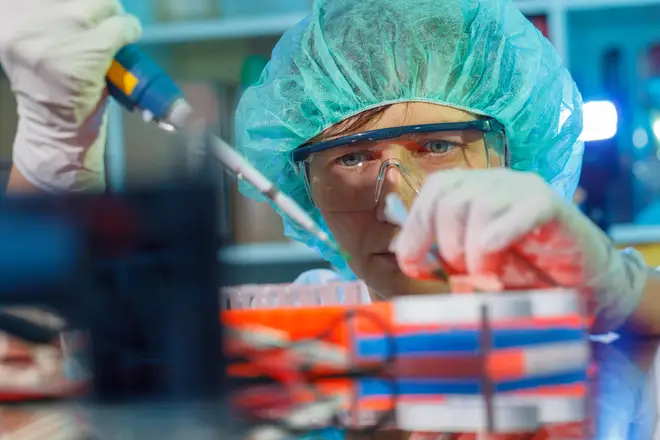
Nick Ferrari 7am - 10am
21 April 2022, 20:57

A "mindblowing" gene discovery has identified a "treasure trove" of new clues about the causes of cancer that could revolutionise treatment for patients.
Researchers at the University of Cambridge looked at the genomes of more than 12,000 people with cancer in England in the biggest study of its kind.
Until now, scientists have been able to identify 72 mutational signatures which could cause cancer.
But in the new study, researchers spotted 58 new patterns in their DNA, called mutational signatures, suggesting there are causes that scientists are not yet aware of.
They claim this will allow medics to develop a tool to help match treatments to patients, The Telegraph reports.
The patterns can only be detected in cancer patients who have had their whole genome sequenced by scientists - which isn't routinely done.
Read more: Exclusive: 'Free my British friend who fought for Ukraine's freedom', Truss told
Read more: Boris 'in peril' after MPs back fresh Partygate inquiry over whether he misled Parliament

Surgeon gives LBC his perspective on delays in cancer treatment
Currently, only cancers in children, specific leukemias and sarcomas - rare cancers affecting the body's tissues - are sequenced through the NHS but experts expect this list to be widened in the coming years.
Professor Serena Nik-Zainal, a genomic expert who led the study, said these patterns are like "fingerprints at a crime scene".
It is hoped the findings could transform cancer treatment in the next five to 10 years.
The study - said to be the largest of its kind - analysed the whole-genome sequences of more than 12,000 NHS cancer patients.
Genome sequencing looks at all of the thousands of DNA building blocks within each tumour, showing the mutations that contribute to each person's cancer.
Read more: Mother howls as she is found guilty with stepfather and teen of murder of Logan Mwangi, 5
Some of the new mutational patterns observed were present across many different cancer patients, while some were more rare.
Professor Serena Nik-Zainal said the findings, which was supported by Cancer Research UK, could indicate an "Achilles heel" in individual cancers that could be targeted with treatment.
She said it was “mindblowing” to have been able to carry out such major research involving so many patients.
“I’m amazed. I am so proud, actually, to be a doctor and a scientist that can use this data that has been generated by the public sector; it is extraordinary,” she said.
Michelle Mitchell, the chief executive of Cancer Research UK, said: “This study shows how powerful whole-genome sequencing tests can be in giving clues into how the cancer may have developed, how it will behave and what treatment options would work best.”